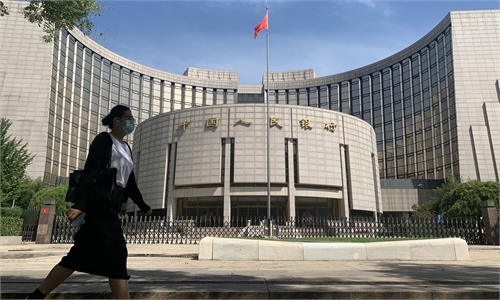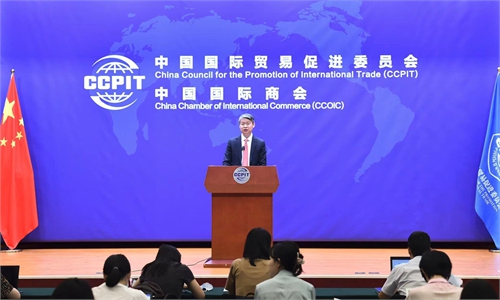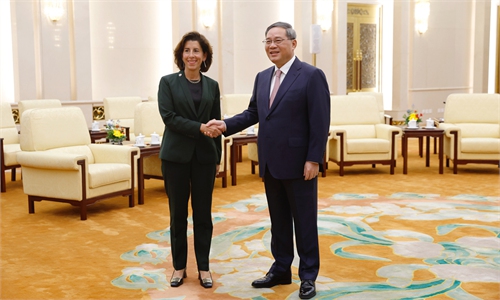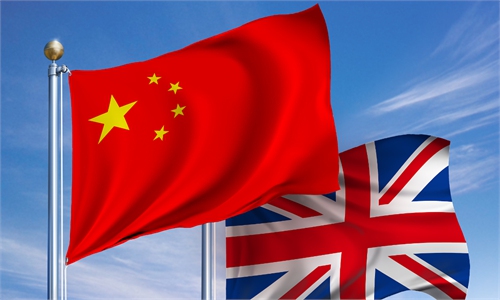KUALA LUMPUR:
Gen Y youths young people usually recognised for their
savvy in communications, media, and digital technology will benefit from
the Government's move to draw quality high-tech and knowledge-driven
investments to the country.
International Trade and
Industry Minister Datuk Seri Mustapa Mohamed
said with the Government's emphasis on developing the 11.4 million
youths who make up 46% of the nation, it was important for Gen Y workers
to have access to companies with good training, exposure and salaries.
“The Government is adopting new methods by looking beyond hard
FDI (foreign direct investment) numbers,” he said here yesterday.
“Services
companies are becoming more crucial to our economy, and their presence
in
Malaysia is relevant to the young through their (the companies') job
creation.”
Mustapa said the Government was not only giving out
fiscal incentives, such as tax holidays and training grants, to attract
quality investments, but had also liberalised 18 services sectors this
year, to follow the 27 in 2009.
He said such measures had yielded
“fruitful results” with companies like Service Source, test and design
company National Instrument and computer multi-national Hewlett Packard,
employing large numbers of Gen Y workers.
“Service Source, a recurring revenue management company, came to Malaysia in 2010 with only 27 people.
“Last June, it surpassed 550 staff the majority being graduates or diploma holders and more than half of them are below 30.
“National
Instrument is another sterling example. It offers a salary scheme to
graduates equivalent to that offered by some investment banks in
Malaysia,” Mustapa added.
The Jeli MP emphasised that FDI was
particularly relevant to Gen Y, as the creation of employment and
knowledge spillover from foreign companies allowed youths to be exposed
to new technologies and cutting-edge training schemes.
He said these companies offered competitive salary packages.
“This
will increase their knowledge in the industry and improve their
employability,” he said, giving the example of oilfield services
corporation
Halliburton, which sends fresh graduates to their training centre in the
United States for up to 18 months to gain specialised knowledge.
However, Mustapa said, there were challenges to attracting such investments.
“Some companies are not willing to pay more for talent, and so might face a higher turnover rate.
“There is also competition for FDIs from countries that offer bigger incentives or huge domestic markets.
“However,
Malaysia offers a value proposition as we have a sound infrastructure
and legal system, investor-friendly policies, and a talent pool that
will be able to complement investors.”
International Trade and
Industry Minister Datuk Seri Mustapa Mohamed has been working hard to
bring in investments that Gen Y can benefit from.
In an interview, he talked about the government's approaches and challenges faced.
Excerpts from the interview:
>What do you think of the state of Malaysia's economy?
There
lots of of challenges globally and regionally. Europe is still in some
trouble, America is not out of the woods yet. India is going through a
difficult period politically and economically as well - there was a time
where India was very bullish. Although growth is still good there, it's
not that good as a year and a half ago. China is still going strong.
The bright spots will be ASEAN, Africa, the Middle East.
Against
that backdrop, our performance has been quite credible, our economy is
doing okay, steady growth that is higher than the world's average.
Unemployment rate is low, inflation is manageable, we have an issue with
the deficit which is being managed well by the govt. We have strong
reserves. Our fundamentals are strong.
Some factors leading to Malaysia's relatively strong state of economy are the fiscal stimulus, the
Economic Transformation Programme, our diversified economy, and robust customer spending.
>Do you think the youth population of Malaysia will benefit from our economy?
Yes,
our employment opportunities will of course benefit mainly young
people. Many come out from universities and expect to get a job, a good
job. Some come out and do temporary work, which is useful - working in a
hypermarket or petrol station, for example - these are very important
stepping stones as they allow you to get some experience.
Our
graduates are not as selective as before, they are prepared to accept
these jobs to sustain them for a few years before moving on to a
better-paying one. Gen Y represents a big percentage of the Malaysian
population, and the Government is mindful of the fact that this is a
volatile and dynamic component of the population.
The issue is
quality employment. Graduates being paid RM2,000 is not true reflection
of what they can contribute. Some companies are not paying their
graduates too well, some graduates are accepting jobs which require
lower qualifications and for that reason salaries are lower.
Job
opportunities are plentiful, that's not an issue here. We have lots of
job opportunities in Malaysia but the challenge for us in government is
to generate more quality employment opportunities.
From anecdotal
evidence, many graduates are not happy with the entry-level salaries.
That's why Budget 2013 focuses a lot on young people, including measures
such as the Graduate Employability Taskforce with an allocation of
RM200mil. This isn't new, we have
Talent Corp, we have collaborated with various institutions like Mida to help young people.
We
also have the 1Malaysia Training Scheme Programme (SL1M), which will
increase the employability of graduates through soft skills and
on-the-job training in private companies.
From MITI's point of
view, our job is to stimulate investment, both domestic direct
investment and FDI. We have been working very hard.
In an average
year, the companies approved by the
Malaysian Investment Development
Authority (Mida) will normally generate about 100,000 new job
opportunities. The
ETP
over the next 10 years will generate 3.3 million jobs, that makes
330,000 a year. That's the kind of number we are looking at, and many of
these jobs will b available to young people.
>Are we making steady progress towards this goal?
Definitely.
There's a company out there, Service Source international - they
started small here but when I saw them two weeks ago they had a
headcount of more than 500. Their plans are to add more. This is a
company of graduates, most of the staff are either diploma-holders or
local graduates.
Service Source have also launched a Protg
Programme in the company where many fresh graduates are given on the job
training at an executive pay package.
Another of fruitful
result, is a company in Penang called Agilent which has 2,800 people.
900 of them work in research and development.
In Iskandar you have Legoland, people who work in these places command high salaries.
Of
course in sectors like banking and finance they will be well-paid,
there has been good growth in Islamic banking and finance in the
country. As Islamic finance in Malaysia grows, as the country becomes a
hub for the region, there are more opportunities created for young
people.
>Why are foreign direct investments relevant to the young, particularly to Gen Y?
The creation of employment - without jobs, our youth will not find an opportunity to improve their economic standing.
Panasonic, for example, employs 20,000 Malaysians as executives and also as blue-collar, factory workers.
The
other reason is knowledge spillover as a result of forward or backward
linkages with foreign companies possessing high technology that invest
in Malaysia, our youth will be exposed to new technology on their job.
This will increase their knowledge in the industry and improve their
employability as they move further in the industry and perhaps
opportunity for them to carry out their own business operations as a
vendor to the foreign investor.
Halliburton, one of the world's
largest providers of products and services to the energy industry,
provide specified training to its fresh graduates from six to 18 months
while they are on the job.
They also send these Malaysian fresh
graduates to Halliburton Technical Training Centre in the United States.
This is an example of how knowledge spillover from FDI can benefit our
youth.
>What is the Government doing to attract quality investments?
We
are more focused now, more targeted. We can't compete with some of our
neighbours in terms of wages, but where we can compete are the areas
where companies require higher skills, productivity. We target companies
that are high-tech, knowledge-intensive companies.
The Government is considering
GNI
creation of any project or investment while also using employment
creation as a complementing tool to measure a “good investment”.
In
giving out fiscal incentives such as tax holidays and training grants;
the Government targets knowledge-driven, research and development based
companies that budget a large amount on capital spend on technology per
employee.
We have to look at the supply side as well, increase the supplies of trade and human capital.
The
Government liberalized 27 services sectors in 2009 and a further 18
services sectors in 2012. The intention behind this is to drive foreign
investments which can create quality, high-paying jobs.
While
recording low investments, services companies are becoming more crucial
to our economy and their presence in Malaysia is relevant to the young
through their job creation.
>Have these approaches been fruitful?
Yes,
along with companies I already told you about, there's National
Instrument - another sterling example, a test-and-design company. NI
Malaysia offers a salary scheme to graduates that is equivalent to the
salary schemes offered by some of the investment banks in Malaysia.
More
importantly, it has a unique internship programme formed in 2009. In
2012, they admitted around 30 graduates and these interns were trained
in R&D and manufacturing as well as IT applications.
There is
also Hewlett Packard, which has its Operation Headquarters for
Asia-Pacific here. We gave them a tax holiday - one of the ways we are
attracting investments, as you asked before.
>But how do
you know these foreign companies will hire fresh graduates rather than
someone who has already been in the workforce for a while?
Well,
some companies do prefer to take people from other companies rather
than train fresh graduates. There are different ways to do it, and some
companies to tend to take the easier way out. But I feel they should
invest in youth, employ them, train them. The companies must play a
better role in training youth, it can't just be left to the Government.
I'll
bring up SL1M again - we've found that our graduates become much more
employable after learning these soft skills - they become more
proactive, more aggressive, more forthcoming. The government is doing
that, but we urge and strongly encourage companies to play a more active
role and train its new recruits.
>Are there any challenges when it comes to attractive quality investment?
It's
a chicken and egg issue - companies will come here if we have a large
pool of skilled graduates and manpower, and that will bring in more
investments as well. On the other hand, if the skills are not available
then they will not come. We need to increase the supply of human
capital.
Companies operate on cost factors and many companies
that are interested in Malaysia are still looking at low cost factors in
Malaysia. Some companies are not willing to pay more for talent.
There
is also competition for FDIs, Singapore, Hong Kong and Taiwan offers
bigger incentives and has very liberal policies while countries such as
Thailand, Vietnam and Indonesia continue to offer a huge domestic market
which interests investors.
However, I am convinced that Malaysia
offers a value proposition as we have sound infrastructure and legal
system, investor-friendly policies and a talent pool that will be able
to complement investors.
>What are some of the challenges a company may face in recruiting Gen Y workers?
In
general, those companies which offer lower salaries are not so good
with attracting good people. Those which are willing to pay a little
more have better luck.
>Do you think these companies would be more inclined to hire expats?
In general, bringing in expats costs money, and if you add up, it will almost certainly be more than what you pay a local.
>Would local graduates be making more if they took their skillset overseas?
If
you factor in other costs - rent, transport, cost of car... We found
that at the top level, the gap is not that wide. Malaysians earn a
decent income. The problem is the entry rates at base levels, entry
point salary is where the difference is.
Once Malaysians leave,
it is harder for them to come back because they've made friends, settled
down, become part of the community. If our entry level salary is low,
and because of that people work overseas, it will become even more
challenging to build this talent pool.
In my view, if companies
have better entry-rate salaries, it will help to prevent brain drain,
and also solve some problems companies have when hiring.
>Do you think that the development of our Gen Y will meet the Government's aspirations of attracting quality investments?
In
a way, some of our measures are short-term. We need more medium and
long-term solutions, for example, reform the education system. It needs
to be more hands-on, so we've got some measures like the National
Education Blueprint.
We also need to regularly change the
curriculum in schools and universities. Malaysians have to develop a
love for skills, fight to get a job.
I would like to relate to
you a story of a young girl by the name of Nani Abdul Rahman. She is an
alumni of Yayasan Khazanah, which I chair. She read Law at IIUM and in
her penultimate year, she interned at Khazanah. Khazanah Nasional
offered her a job as an analyst and after working for a few years, she
got an offer to do her Masters in Jurisprudence at Harvard University.
Today, she is a senior personnel at one of the biggest Islamic banks in
the world.
I have complete trust in our Gen Y. They are very confident and well exposed generation.
>How
do MNCs feel about local graduates? Do they prefer those who graduated
from foreign universities, Ivy Leagues and similar?
Some of
our local graduate are good, some are outstanding. Many of our top
corporate figures were trained in this country. Not every top corporate
guy studied overseas. I don't think companies have a preference, it does
depend on the person.
If you're a foreign university graduate
but you're quiet, timid, aloof - the company will not want to take you
on. It is the qualities a person holds.
Companies are looking for
a person who is outgoing, passionate, ready to learn, good work
ethics... These characteristics can come from a local or foreign
graduate.
>You hold the importance of education in very high regard.
Yes - even within my community in Jeli, the constituency I am MP for, I focus on developing human capital.
I
run and fund the Darul Falah programme, which provides free tuition for
students between 10-12 every Friday and Saturday. The focus is on
English, Maths and Science.
The centre actually operates out of
my house in Kelantan, it started about 15 years ago. I also have three
other centres which have been up and running for three years now.
It
is important in a rural area like Jeli, the children get some exposure.
There has been improvement, but I am still not happy with it.
The
programme has expanded to offer free computer classes, we hold camps,
essay writing competitions in both Malay and English - I give prizes to
the winners.
Last year when I was in Perth for work I met a
number of students and one of them, a JPA scholar, came to me. She said
she was an alumni of Darul Falah. Her father was a customs officer who
used to send her back and forth on a motorcycle to Darul Falah when she
was 10.
She is now a scholar reading Commerce at the University
of Western Australia and she aspires to be a Partner at
PriceWaterhouseCoopers.
It's moments like those that underline my conviction that education is the best investment.
>Do you have any advice for Gen Y looking to make a living in Malaysia?
Be
prepared to start small, meaning, accept any job and learn while doing
it. Shine in your job, by which I mean outshine others.
Discipline
and passion are very important qualities. You need to be disciplined.
Work ethics, passion - in my view, these are qualities some graduates
are lacking. Passion and commitment are important.
The technical knowledge you earned is important, of course, but so are passion, discipline and commitment.
By TASHNY SUKUMARAN tashny@thestar.com.my
Related posts:
Jul 27, 2012
 China’s slowdown is a key risk for the world economy, commodities and energy markets as well as the semiconductor industry. — Bloomberg
China’s slowdown is a key risk for the world economy, commodities and energy markets as well as the semiconductor industry. — Bloomberg













